Daily History Lesson – December 11
1777 – General George Washington began marching 12,000 soldiers of his Continental Army from Whitemarsh to Valley Forge, Pennsylvania for the winter. As Washington’s men began crossing the Schuylkill River, they were surprised by a regiment of several thousand British troops led by General Charles Cornwallis. The British came across the continental forces by chance as they were foraging for supplies in the hills outside Philadelphia.
Washington ordered his soldiers to retreat across the Schuylkill River, where they destroyed the bridge to prevent the British from pursuing them. After engaging the British for a short time from the opposite side of the river, Washington and the Continental Army retreated back to Whitemarsh, delaying their march to Valley Forge for several days.
General William Howe, commander of the British Army, chose to enjoy the comparative luxury and civility of winter in Philadelphia instead of engaging Washington’s forces at Valley Forge, despite their weakened and ill-defended state.
1816 – Indiana entered the United States of America as the 19th state.
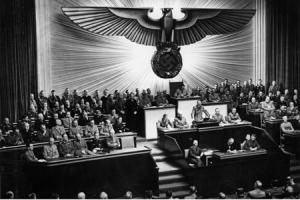
1941 – Italy and Germany declared war on the United States, bringing America, which had been neutral, into the European conflict. The Japanese bombing of Pearl Harbor had surprised even Germany.
Although Adolf Hitler had made an oral agreement with Japan that Germany would join a war against the United States, he was uncertain as to how the war would be engaged. Japan’s attack on Pearl Harbor answered that question. On December 8, Japanese Ambassador Oshima went to German Foreign Minister von Ribbentrop to nail the Germans down on a formal declaration of war against America.
Von Ribbentrop stalled for time; he knew that Germany was under no obligation to do this under the terms of the Tripartite Pact, which promised help if Japan was attacked, but not if Japan was the aggressor. Von Ribbentrop feared that the addition of another antagonist, the United States, would overwhelm the German war effort.
But Hitler thought otherwise. He was convinced that the United States would soon beat him to the punch and declare war on Germany. Hitler despised Roosevelt for his repeated verbal attacks against his Nazi ideology. He also believed that Japan was much stronger than it was, and that once Japan had defeated the United States, it would turn and help Germany defeat Russia.
That same day, Hitler addressed the Reichstag to defend the declaration. The failure of the New Deal, argued Hitler, was the real cause of the war, as President Roosevelt, supported by plutocrats and Jews, attempted to cover up for the collapse of his economic agenda. “First he incites war, then falsifies the causes, then odiously wraps himself in a cloak of Christian hypocrisy and slowly but surely leads mankind to war,” declared Hitler, causing the Reichstag members to leap to their feet in thunderous applause.

1946 – John D. Rockefeller, Jr. offered a six-block area of land in New York City for use as world headquarters of the United Nations. The offer was accepted the following day.

1946 – In the aftermath of World War II, the General Assembly of the United Nations votes to establish the United Nations International Children’s Emergency Fund (UNICEF), an organization to help provide relief and support to children living in countries devastated by the war.
During the 1980s, UNICEF assisted the U.N. Commission on Human Rights in the drafting of the Convention on the Rights of the Child. After its introduction to the U.N. General Assembly in 1989, the Convention on the Rights of the Child became the most widely ratified human rights treaty in history, and UNICEF played a key role in ensuring its enforcement.
Of the 184 member states of the United Nations, only two countries have failed to ratify the treaty – Somalia and the United States. Somalia does not currently have an internationally recognized government, so ratification is impossible, and the United States, which was one of the original signatories of the convention, has failed to ratify the treaty because of concerns about its potential impact on national sovereignty and the parent-child relationship.
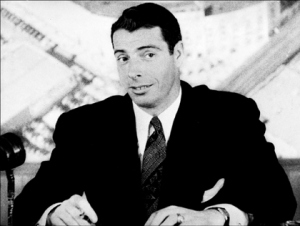
1951 – Following a season in which his batting average had dropped dramatically (.261), Joe DiMaggio announced his retirement from baseball. Joltin’ Joe played his entire 13-year career with the New York Yankees. His lifetime batting average was .325 and his streak of 56 consecutive games with at least one hit still stands as a record.
“I feel like I have reached the stage where I can no longer produce for my club, my manager, and my teammates. I had a poor year, but even if I had hit .350, this would have been my last year. I was full of aches and pains and it had become a chore for me to play. When baseball is no longer fun, it’s no longer a game, and so, I’ve played my last game.”
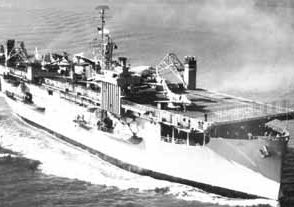
1961 – The ferry carrier, USNS Core arrived in Saigon with the first U.S. helicopter unit. This contingent included 33 Vertol H-21C Shawnee helicopters and 400 air and ground crewmen to operate and maintain them. Their assignment was to airlift South Vietnamese Army troops into combat. It the first direct American military support for South Vietnam’s battle against Communist guerrillas.
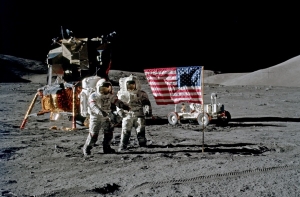
1972 – Apollo 17 landed on the surface of the Moon. It was the sixth and last landing of humans. Astronauts Eugene Cernan and Harrison Schmitt spent a total of 22 hours doing Extra-vehicular activity (EVA) in the three days they were on the surface.

1978 – Six masked men bound 10 employees at a Lufthansa cargo area at New York’s Kennedy Airport and stole an estimated $5 million in cash ($18.1 million today) and $875,000 in jewelry ($3.2 million today), making it at the time the largest cash robbery committed on American soil.
The robbery – the brainchild of Jimmy Burke, an associate of the Lucchese crime family – was a key plot element in the 1990 film, Goodfellas. Burke – played by Robert De Niro in the film – was convicted of murder on February 19, 1985, after Henry Hill testified against him and joined the Witness Protection Program. Burke died of lung cancer at the age 64 in 1996
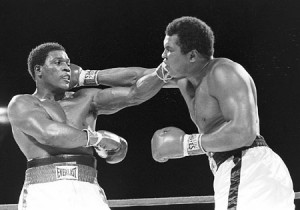
1981 – Trevor Berbick beat former heavyweight champion Muhammad Ali in a unanimous 10-round decision, before a crowd of 10,000 at the Queen Elizabeth Sports Centre in Nassau. Ali retired for good after the fight, finishing his career with an overall record of 56-5 and earning a lasting reputation as one of the 20th century’s most influential sportsmen.
1994 – In the largest Russian military offensive since the 1979 invasion of Afghanistan, thousands of troops and hundreds of tanks poured into the breakaway Russian republic of Chechnya. Encountering only light resistance, Russian forces had by evening pushed to the outskirts of the Chechen capital of Grozny, where several thousand Chechen volunteers vowed a bitter fight against the Russians.
After the initial gains of the Russian army, the Chechen rebels demonstrated a fierce resistance in Grozny, and thousands of Russian troops died and many more Chechen civilians were killed during almost two years of heavy fighting. In August 1996, Grozny was retaken by the Chechen rebels after a year of Russian occupation, and a cease-fire was declared. In 1997, the last humiliated Russian troops left Chechnya.
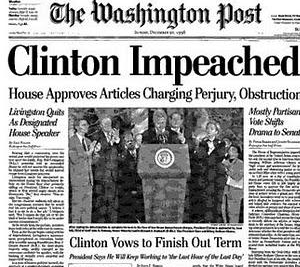
1998 – The House Judiciary Committee approved three articles of impeachment against President Bill Clinton.
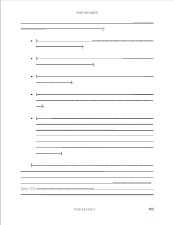
2002 – A congressional report found that intelligence agencies before Sept. 11, 2001, were poorly organized, poorly equipped and slow to pursue clues that might have prevented that day’s terrorist attacks. An alleged leak from the committee detailed classified information that the National Security Agency had received warning of the attacks on September 10th but failed to translate and forward them.
In August 2002, unnamed individuals who had read the report revealed it contained accusations of links between the government of Saudi Arabia and the attacks. The Saudis denied it. President George W. Bush decided to classify the controversial twenty-eight pages which allegedly dealt with allegations about links between Saudi Arabia and the hijackers.
In 2011, President Barack Obama promised survivors he would make public the contents of the 28 redacted pages. He has not yet done so – and one prevailing theory suggests the reasons both Bush and Obama have kept the report under wraps: Initially, it was America’s reliance on foreign oil and currently, releasing the names may destabilize the Saudi government at a time when they are coming under attack from ISIS and al-Qaeda. It is not in the interest of the U.S. to cause the fall of the House of Saud – not when even more radical Islamists are waiting in the wings.
And so, the photo shown above is just an example of what we still don’t know.
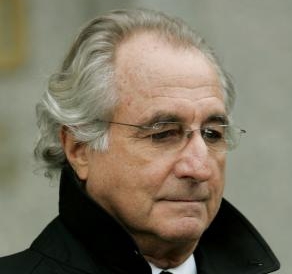
2008 – Financier Bernard Madoff was arrested at his New York City apartment and charged with masterminding a long-running Ponzi scheme later estimated to involve around $65 billion, making it one of the biggest investment frauds in Wall Street history.
The day before, Madoff had revealed to his brother and two sons, who worked for the legitimate arm of his firm, that his investment-advisory business was a fraud and nearly bankrupt. Madoff’s sons turned in their father to federal authorities. Madoff was freed on $10 million bail, and placed under 24-hour house arrest at his penthouse on Manhattan’s Upper East Side.
On March 12, 2009, Madoff pleaded guilty to the 11 felony counts against him, including securities fraud, money laundering and perjury. On June 29 of that year, a federal district court judge in Manhattan sentenced Madoff to 150 years behind bars, calling his actions “extraordinary evil.”
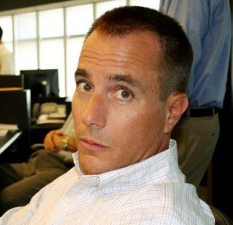
2010 – On the second anniversary of Madoff’s arrest, his 46-year-old son Mark – facing a slew of lawsuits from bilked investors trying to recover their money – committed suicide in his Manhattan apartment. Bernard Madoff, who is serving his sentence at the Butner Federal Correctional Complex in North Carolina, has maintained that his family members knew nothing about his crimes and although they have faced intense scrutiny, none have been charged with any wrongdoing.
Compiled by Ray Lemire ©2015 RayLemire.com. All Rights Reserved.